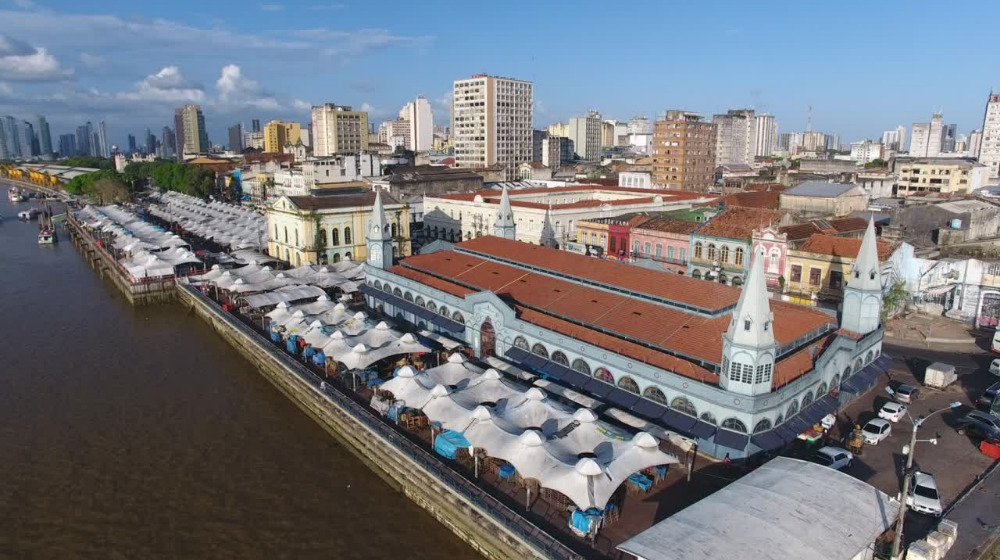Unprecedented study provides an overview of urban agriculture in Belém

Urban agriculture in Belém and the surrounding metropolitan region has the potential to produce 19,000 tons of vegetables annually. Besides generating 3,267 jobs, this is sufficient to feed 1.7 million people and provide another 950,000 with açaí beverages. This is just one of the findings of the report “The challenges and potential for urban and peri-urban agriculture in Belém”, launched on 14 October. The data and main findings of the study – conceived and undertaken by Instituto Escolhas in partnership with Belém City Council – are available on an interactive online platform.
“Over the last few months, we focused our efforts on understanding the food system in Belém. This includes knowing where foods come from, how and where they are sold, and which institutions can help strengthen urban and peri-urban agriculture in Belém economically. For the first time, this information is brought together in one place, accessible to the broader public”, says Jaqueline Ferreira, portfolio manager at Instituto Escolhas and project coordinator.
Divided into eight sections, the platform explains the processes and relationships that are involved in food production, supply, commercialization, and consumption in Belém and the surrounding region. It also provides a typology of agriculture in Belém, outlining the eight types of agriculture identified by the study.
“This platform generates two immediate benefits: first, it places the development of urban agriculture on the city’s agenda, making people aware of its potential and enabling them to get involved. Second, it increases the local consumer base by publicizing selling points for healthy foods produced employing agroecological and socially fair practices. We have great expectations. We want to develop all the chains of production of healthy food in the urban area”, assures Apolônio Brasileiro, Belém City Council’s economics secretary.
The study also identified areas suitable for agriculture in the city. “We mapped unbuilt sites and unused or underused land that can be used to produce food. Then we simulated the application of sustainable production models on these potential areas and on agroforestry systems for the production of açaí”, explains Jaqueline. “That’s how we arrived at the figures that show the major potential of agriculture in Belem”, she adds.
The main challenges identified by the study are related to the regulation of the activity, high logistical costs, and poor access to technical assistance, public policies, and credit. According to Brasileiro, the appraisal undertaken by Instituto Escolhas should help change this situation. “Thinking about the development of urban agriculture requires efforts not only from Belém City Council or the Department of Economics, but a wide range of government bodies and social organizations. Now, with this study, we are able to plan and develop integrated actions”.
The platform can be accessed at agriculturaembelem.escolhas.org/en
Related
Brazil attended COP-6 in Minamata without presenting an action plan to address mercury usage in mining
Study shows 2,274% increase in herbicide use for soybean production
Technical assistance is prevalent in legal regulations and public policies; however, a study indicates that it does not adequately reach rural producers
Study reveals Brazil applies pesticides and fertilizers inefficiently and unsustainably in soybean farming

 Texto
Texto